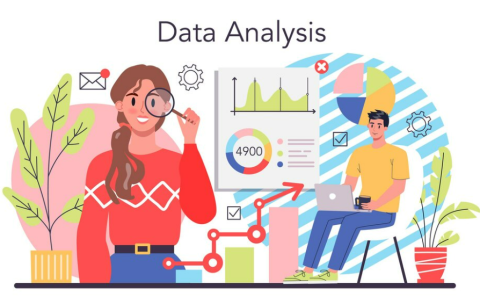Popular Instructors
All Gig Economy Courses
Marketing and Personal Branding for Gig Professionals
Marketing and Personal Branding for Gig Professionals are crucial in …
What you'll learn
Week 1: Introduction to Gig Work and Personal Branding (4 Hours)
Session 1 (2 Hours): Understanding the Gig Economy
Definition and Characteristics of the Gig Economy
Role of Gig Professionals in the Modern Workforce
Gig Work Trends and Opportunities
Session 2 (2 Hours): Importance of Personal Branding
What is Personal Branding?
Why Personal Branding Matters for Gig Professionals
Building a Strong Online Presence
Week 2: Marketing Fundamentals (6 Hours)
Session 3 (2 Hours): Marketing Essentials for Gig Professionals
Introduction to Marketing
Target Audience Identification
Unique Selling Proposition (USP)
Session 4 (2 Hours): Digital Marketing Strategies
Digital Marketing Channels (Social Media, Email, SEO)
Content Marketing for Gig Professionals
Online Advertising and Paid Promotion
Session 5 (2 Hours): Content Creation and Marketing
Content Creation Techniques (Blogging, Video, Podcasts)
Content Distribution and Promotion
Measuring Content Marketing Success
Week 3: Personal Branding Strategies (6 Hours)
Session 6 (2 Hours): Personal Branding Strategy
Crafting Your Personal Branding Statement
Building a Consistent Brand Identity
Storytelling for Personal Branding
Session 7 (2 Hours): Building an Online Presence
Optimizing Social Media Profiles
Personal Branding on LinkedIn
Online Reputation Management
Session 8 (2 Hours): Networking and Building Relationships
Networking Strategies for Gig Professionals
Collaboration Opportunities
Leveraging Online Communities
Week 4: Advanced Marketing and Branding (4 Hours)
Session 9 (2 Hours): Advanced Marketing Techniques
Marketing Automation Tools
Influencer Marketing for Gig Professionals
Data-Driven Marketing Decisions
Session 10 (2 Hours): Capstone Project and Course Conclusion
Capstone Project: Personal Branding and Marketing Plan
Presentation of Capstone Projects
Course Summary and Preparing for Marketing Success
This course structure will empower MBA students with the knowledge and skills needed to effectively market themselves and build a strong personal brand as gig professionals. The capstone project will challenge students to create their personal branding and marketing plans to apply their learning in real-world scenarios.
Technology and Innovation in the Gig Economy
Technology and Innovation in the Gig Economy have been pivotal …
What you'll learn
Week 1: Introduction to the Gig Economy and Technology (4 Hours)
Session 1 (2 Hours): Understanding the Gig Economy
Definition and Characteristics of the Gig Economy
Gig Economy Trends and Growth
Impact of Gig Work on the Labor Market
Session 2 (2 Hours): Role of Technology in the Gig Economy
Technology as a Catalyst for Gig Work
Gig Platforms and Digital Marketplaces
Gig Workers and Digital Skills
Week 2: Digital Tools and Platforms (6 Hours)
Session 3 (2 Hours): Gig Platforms and Apps
Overview of Gig Platforms (Uber, Airbnb, Upwork)
How Gig Apps Work
Pros and Cons of Gig Platforms
Session 4 (2 Hours): Tools for Gig Workers
Digital Tools for Efficiency (Project Management, Time Tracking)
Building an Online Presence (Personal Branding)
Financial Management Apps for Gig Workers
Session 5 (2 Hours): Gig Worker Platforms and Communities
Online Communities and Forums for Gig Workers
Networking and Collaboration Opportunities
Learning from Experienced Gig Workers
Week 3: Innovation in Gig Work (6 Hours)
Session 6 (2 Hours): Gig Work Business Models
Different Gig Work Models (Freelancing, Consulting)
Innovation in Gig Business Models
Case Studies of Innovative Gig Ventures
Session 7 (2 Hours): Gig Work and Emerging Technologies
The Role of AI and Automation
Blockchain and Gig Economy Transactions
Gig Work in the Post-Pandemic World
Session 8 (2 Hours): Gig Worker Entrepreneurship
Entrepreneurial Mindset for Gig Workers
Launching Your Own Gig Business
Navigating Gig Economy Challenges
Week 4: Digital Transformation and Future of Gig Work (4 Hours)
Session 9 (2 Hours): Digital Transformation in Gig Work
Digital Transformation Trends
Adapting to Technological Change
Future-Proofing Your Gig Career
Session 10 (2 Hours): Capstone Project and Course Conclusion
Capstone Project: Innovative Gig Business Plan
Presentation of Capstone Projects
Course Summary and Preparing for the Future
This course structure will equip MBA students with the knowledge and skills needed to thrive in the gig economy by leveraging technology and fostering innovation in their gig ventures. The capstone project will challenge students to develop innovative gig business plans to apply their learning in real-world scenarios.
Legal and Ethical Considerations in Gig Work
Legal and Ethical Considerations in Gig Work are essential aspects …
What you'll learn
Week 1: Introduction to Gig Work and Legal Framework (4 Hours)
Session 1 (2 Hours): Understanding Gig Work
Definition and Scope of Gig Work
Types of Gig Workers (Freelancers, Contractors, Platform Workers)
Gig Work Trends and Statistics
Session 2 (2 Hours): Legal Framework for Gig Work
Employment vs. Independent Contractor Classification
Labor Laws and Gig Workers
Contractual Agreements and Gig Platforms
Week 2: Employment Rights and Protections (6 Hours)
Session 3 (2 Hours): Gig Worker Rights
Rights to Fair Compensation
Health and Safety in Gig Work
Discrimination and Harassment Protections
Session 4 (2 Hours): Gig Worker Benefits
Access to Benefits (Healthcare, Retirement)
Gig Worker Unions and Advocacy
Government Initiatives for Gig Workers
Session 5 (2 Hours): Legal Challenges and Disputes
Common Legal Disputes in Gig Work
Resolution Mechanisms (Arbitration, Litigation)
Gig Worker Insurance and Liability
Week 3: Ethical Dilemmas and Responsibilities (6 Hours)
Session 6 (2 Hours): Ethical Considerations in Gig Work
Ethical Challenges in Independent Work
Balancing Multiple Clients and Interests
Privacy and Data Ethics
Session 7 (2 Hours): Corporate Social Responsibility (CSR) in Gig Platforms
CSR and Gig Economy Platforms
Fair Practices and Ethical Responsibilities
Sustainability and CSR Reporting
Session 8 (2 Hours): Building Ethical Gig Businesses
Ethical Entrepreneurship
Ethical Decision-Making Frameworks
Case Studies in Ethical Gig Ventures
Week 4: Compliance and Future of Gig Work (4 Hours)
Session 9 (2 Hours): Compliance and Future of Gig Work
Gig Work Regulations and Compliance
The Future of Gig Work (Automation, AI)
Preparing for the Evolving Gig Economy
Session 10 (2 Hours): Capstone Project and Course Conclusion
Capstone Project: Ethical Business Plan
Presentation of Capstone Projects
Course Summary and Implications for Gig Workers
This course structure will empower MBA students with the knowledge and skills needed to navigate the legal and ethical complexities of gig work, fostering responsible and sustainable practices in the gig economy. The capstone project will challenge students to apply their learning to real-world scenarios and ethical business planning.
Digital Platforms and Freelance Management
Digital Platforms and Freelance Management involve leveraging online tools and …
What you'll learn
Week 1: Introduction to Digital Gig Economy (4 Hours)
Session 1 (2 Hours): Understanding Digital Gig Economy
Overview of the Digital Gig Economy
Historical Context and Growth
Key Digital Gig Platforms
Session 2 (2 Hours): Gig Work Opportunities Online
Types of Digital Gig Work
Exploring Online Marketplaces
Pros and Cons of Digital Gig Work
Week 2: Freelance Skills and Online Presence (6 Hours)
Session 3 (2 Hours): Developing Freelance Skills
Identifying Marketable Skills
Skill Development and Enhancement
Freelancer's Toolkit
Session 4 (2 Hours): Building a Strong Online Presence
Personal Branding Online
Creating an Effective Portfolio
Leveraging Social Media for Freelance Success
Session 5 (2 Hours): Financial Management for Freelancers
Budgeting and Financial Planning
Taxes and Invoicing
Retirement Planning for Freelancers
Week 3: Effective Freelance Management (6 Hours)
Session 6 (2 Hours): Finding and Navigating Gig Opportunities
Identifying Relevant Projects
Bidding Strategies
Navigating Online Job Boards
Session 7 (2 Hours): Client Communication and Relationship Building
Effective Communication with Clients
Managing Client Expectations
Handling Client Feedback and Disputes
Session 8 (2 Hours): Pricing Strategies and Contracts
Setting Competitive Rates
Drafting Freelance Contracts
Legal Considerations for Freelancers
Week 4: Career Advancement and Future Trends (4 Hours)
Session 9 (2 Hours): Networking and Building a Freelance Network
Importance of Networking in Freelancing
Strategies for Expanding Your Freelance Network
Collaborative Freelance Projects
Session 10 (2 Hours): Capstone Project and Course Wrap-Up
Developing a Freelance Management Plan
Presentation of Freelance Strategies
Course Recap and Future Trends in the Digital Gig Economy
This course structure equips MBA students with the knowledge and practical skills needed to excel in the digital gig economy. The capstone project allows students to apply their learning to create a personalized freelance management plan, setting them on a path toward successful and sustainable freelance careers.
Entrepreneurial Skills for Independent Work
Entrepreneurial Skills for Independent Work are essential for individuals looking …
What you'll learn
Week 1: Introduction to Entrepreneurship (4 Hours)
Session 1 (2 Hours): Understanding Entrepreneurship
What Is Entrepreneurship?
The Entrepreneurial Mindset
The Role of Entrepreneurs in the Economy
Session 2 (2 Hours): Identifying Business Opportunities
Recognizing Business Ideas
Market Research and Opportunity Analysis
Idea Generation and Evaluation
Week 2: Business Planning and Strategy (6 Hours)
Session 3 (2 Hours): Business Plan Development
Elements of a Business Plan
Creating a Business Model Canvas
Financial Projections and Budgeting
Session 4 (2 Hours): Marketing and Sales Strategies
Market Segmentation and Targeting
Marketing Mix (4Ps)
Sales and Promotion Strategies
Session 5 (2 Hours): Operations and Resource Management
Supply Chain Management
Resource Allocation and Management
Technology and Automation
Week 3: Financial Management and Funding (6 Hours)
Session 6 (2 Hours): Financial Management
Financial Statements and Analysis
Cash Flow Management
Financial Decision-Making
Session 7 (2 Hours): Funding Options for Startups
Bootstrapping
Angel Investors and Venture Capital
Crowdfunding and Grants
Session 8 (2 Hours): Legal and Ethical Considerations
Business Structure and Legal Requirements
Intellectual Property
Ethics in Entrepreneurship
Week 4: Launching and Scaling Your Business (4 Hours)
Session 9 (2 Hours): Launching Your Business
Go-to-Market Strategies
Sales and Marketing Launch
Initial Customer Acquisition
Session 10 (2 Hours): Scaling and Growth Strategies
Scaling Challenges and Opportunities
International Expansion
Exit Strategies and Succession Planning
This course structure provides MBA students with a comprehensive understanding of entrepreneurship and equips them with practical skills to embark on entrepreneurial journeys. The course culminates in a business plan project, where students develop and present their startup ideas, applying the knowledge and skills gained throughout the course.
Navigating the Gig Economy: Opportunities and Strategies
Navigating the Gig Economy involves understanding and leveraging the growing …
What you'll learn
Week 1: Introduction to the Gig Economy (4 Hours)
Session 1 (2 Hours): Understanding the Gig Economy
What Is the Gig Economy?
Historical Context and Growth
Types of Gig Work and Platforms
Session 2 (2 Hours): Pros and Cons of Gig Work
Advantages and Disadvantages of Gig Work
Gig Workers' Characteristics
Gig Work and the Future of Employment
Week 2: Building Gig-Related Skills (6 Hours)
Session 3 (2 Hours): Developing Entrepreneurial Skills
Entrepreneurship in the Gig Economy
Identifying and Assessing Opportunities
Business Planning for Gig Work
Session 4 (2 Hours): Digital Literacy and Online Presence
Leveraging Technology for Gig Work
Creating a Personal Brand Online
Building an Effective Online Portfolio
Session 5 (2 Hours): Financial Management for Gig Workers
Budgeting and Financial Planning
Taxes and Legal Considerations
Retirement and Benefits in the Gig Economy
Week 3: Gig Work Strategies (6 Hours)
Session 6 (2 Hours): Gig Work Platforms and Freelancing
Utilizing Freelancing Platforms
Finding Gig Opportunities
Freelancing Best Practices
Session 7 (2 Hours): Gig Work Negotiation and Pricing
Bidding Strategies
Setting Competitive Prices
Negotiating Gig Contracts
Session 8 (2 Hours): Managing Client Relationships
Effective Communication with Clients
Building Long-Term Client Relationships
Handling Client Feedback and Disputes
Week 4: Career Advancement and Future Trends (4 Hours)
Session 9 (2 Hours): Networking and Building a Gig Network
Importance of Networking in the Gig Economy
Strategies for Expanding Your Network
Collaborative Gig Projects
Session 10 (2 Hours): Capstone Project and Course Wrap-Up
Developing a Gig Work Strategy
Presentation of Gig Work Plans
Course Recap and Future Trends in the Gig Economy
This course structure equips MBA students with the knowledge and practical skills needed to thrive in the gig economy. The capstone project allows students to apply their learning to create a personalized gig work strategy, setting them on a path toward successful and sustainable gig work careers.
Mastering Freelancing in the Gig Economy
This course is designed to equip participants with the knowledge …
What you'll learn
Define freelancing and the Gig Economy, understanding their significance in the modern workforce.
Explore various types of freelancing opportunities and gig platforms available.
Learn how to create a compelling freelance profile and portfolio.
Understand pricing strategies and negotiation techniques for freelancers.
Gain insights into time management and productivity tips for freelancers.
Discover the importance of branding and self-promotion in freelancing.
Analyze case studies of successful freelancers and their career journeys.
Discuss the ethical considerations and challenges faced by freelancers.
Explore emerging trends and opportunities in the Gig Economy.
Formulate strategies for building a sustainable freelance career.
Thriving in the Gig Economy: A Comprehensive Guide for MBA Professionals
Welcome to “Thriving in the Gig Economy: A Comprehensive Guide …
What you'll learn
Define the gig economy and understand its evolution and global impact.
Identify the opportunities and challenges associated with professional gig work.
Analyze market trends and the role of technology in facilitating the gig economy.
Develop strategies for personal branding and online presence in gig marketplaces.
Understand legal, financial, and ethical considerations for gig work.
Enhance negotiation skills for project terms, compensation, and conflict resolution.
Explore the role of networking and community building for career growth.
Evaluate the need for work-life balance and mental well-being in freelance careers.
Apply entrepreneurial thinking to create opportunities within the gig economy.
Formulate competitive strategies for businesses operating in or transitioning to a gig economy framework.
- 1
- 2










